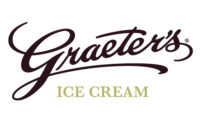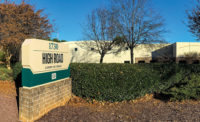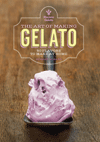PLBuyer magazine named Safeway, Pleasanton, Calif., its 2012 Private Label Retailer of the Year because of its innovative marketing, promotional activities and merchandising for its private labels. (PLBuyer, like Dairy Foods, is published by BNP Media.) Safeway’s marketing of Open Nature points the way for other retailers who want to turn their private labels into distinctive assets they can use to attract shoppers and distinguish their stores in the increasingly competitive food retailing landscape. Safeway’s in-store merchandising and its use of all its assets from stores to its weekly ad circulars to its Web site for promoting private-label sales, also holds lessons for other retailers, Safeway watchers agree.
“The Safeway organization has truly embraced the whole concept that they are building brands, they’re not just selling private label,” said consultant Terry Lee, president of Henderson, Nev.-based Private Brand Advisors and a former leader in Safeway’s private-label area until 2001. “Safeway is doing now what many retailers have talked about — they are truly committed to building unique brands.”
In addition to the wide-ranging marketing effort behind Open Nature, Safeway’s other private-label efforts include rolling out Safeway Farms in late 2011, an expansion of the Safeway line for meat and produce items, and using innovative packaging design for its Snack Artist line to capture industry kudos and consumer attention.
Looking at Safeway’s private-label portfolio, supermarket guru Phil Lempert said, “Safeway has done it really well. It’s been smart, it’s won awards, it’s won taste awards, it hasn’t just slapped a label on the leading products that everyone else makes. [Safeway has] done a great job on recipes, packaging; you don’t think of it as a private label, you really think of it as a great alternative.”
Consumers seem to be responding. Safeway executives have told financial analysts that Safeway private-label sales are growing at three times the rate of national brand sales at Safeway stores across the country.
Like other traditional supermarkets, Safeway needs private-label hits to hold onto shoppers in the crowded food retailing landscape. Private label alone won’t solve all Safeway’s problems, of course.
A change in culture
Safeway has gone through a change in culture when it comes to its private labels. For the past 18 to 24 months, it has been bringing in new talent, many of whom have backgrounds in CPG companies. Indeed Joe Ennen, senior vice president of consumer brands, brought five years of experience at Frito Lay when he joined Safeway in 2009. Diane Dietz, Safeway’s chief marketing officer since 2008, brought nearly 20 years experience at consumer goods titan Procter & Gamble with her. Safeway executives won’t disclose exactly how many people on its private-label team have CPG experience and how many come from food retailer backgrounds, but they acknowledge the changes going on.
“We have fundamentally built the organization and our capabilities around the best of what retail has traditionally delivered to the process and the best of what CPG brings to brand management,” said Mike Minasi, president of marketing with Safeway.
Safeway has garnered a lot of trade press attention by saying it’s blending the best of retailing and CPG practices, and it’s far from the only food retailer who has brought in CPG talent in recent years. But what does such blending really mean when it comes to getting successful private-label products on shelf?
“It’s really about the infusion of new ideas,” Ennen tells PLBuyer. “It’s about [considering and implementing] best practices from other companies and other industries. We’ve hired a significant number of people from CPG as well as created opportunities for people within the organization to move onto the consumer brands team.”
One CPG practice Safeway has instituted is to have brand managers for each of its private labels. Another, one more of focus than structure, has been to increasingly focus on consumers and consumer analytics in developing new lines and new products.
Having access to Safeway checkout data on customers also makes former CPG guy Ennen drool, figuratively, as he tries to discern what new private-label offerings will do this with his shoppers. “It’s incredibly liberating to be able to talk directly to your shoppers 18 hours a day and have data and insight from proprietary data systems to get granular information on what’s working,” he said. “We get better information faster.”
Another aspect of that Safeway culture is to continue to maintain its private-label product processing capabilities to make 14% of its own private label, according to its 2010 annual report, rather than outsourcing all production as some other retailers have opted to do.
“Being completely vertically integrated in some of the categories certainly allows us better control over costs, as well as in some instances allowing us to respond faster to trends in the marketplace,” Ennen said. He points to the relatively quick rollout of Lucerne Greek yogurt, made in a Safeway plant, as one example of how having company-owned processing capabilities helped Safeway be nimble in a new product rollout.
While it continues to make some of its own goods, Safeway also instituted a new supplier program after parting ways with Daymon. Its Safeway Direct Connect program gives suppliers what Ennen calls unprecedented access to Safeway’s non-customer specific shopper data, facilities and strategies “that wasn’t possible before when there was a middle man,” he said.
Some retailers might balk at being so transparent with suppliers, fearful of their information falling into competitors’ hands, but Safeway believes that “fundamentally we have very mutually aligned goals. The more we sell, the more they sell,” Ennen said.









